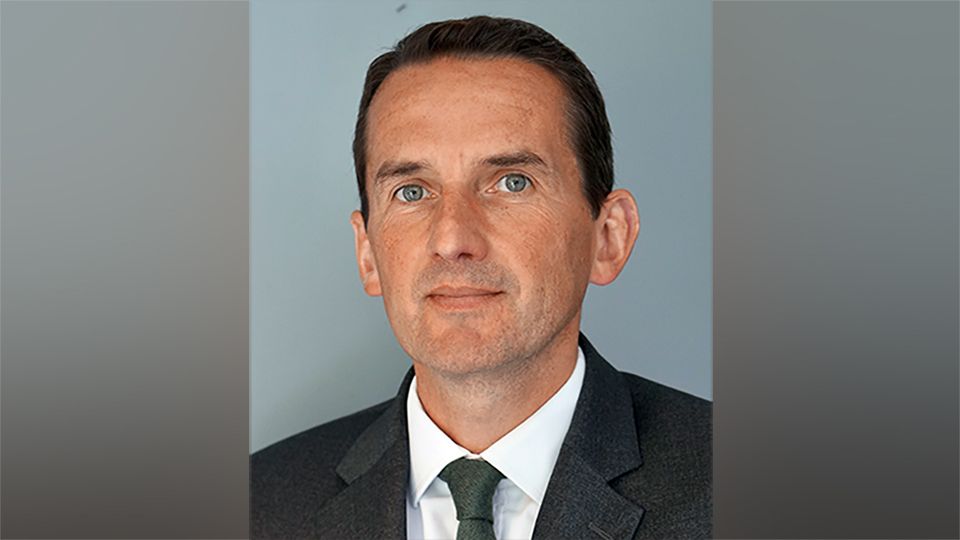City Hive’s CEO Bev Shah has urged investment businesses to invest in supporting the mental health of employees during the pandemic lockdown
Following a free webinar delivered on Tuesday 19 May to coincide with Mental Health Awareness Week, Shah said it is vital the wellbeing of colleagues is looked out for when entire workforces are now working remotely.
“Even though many firms will be looking at major restructuring and cost cutting post the covid-19 crisis we would urge continuing to invest in the professional development of your staff to ensure both wellbeing and productivity levels,” she said.
“This will also send out a clear message that you are a firm worth staying with. Attraction and retention of the best talent is still a major issue for a lot of firms and will continue to be.
“This period of reflection has pushed non-monetary factors up the priority list for many in the industry when putting together a wish list for where someone wants to work.”
The webinar delivered a number of tips to the investment industry on effective ways to work remotely, at a time when the pandemic crisis has placed immense pressure on mental health as they deal with lockdown.
To mark Mental Health Awareness Week from 18-24 May and to support those in the investment industry City Hive, ran the free webinar How to Thrive in a Virtual World with ESG Clarity‘s support as media partner..
International speaker and commentator Christine Brown-Quinn dispelled common myths regarding virtual working as well as giving listeners ideas and inspiration on how to make the most of their careers while not physically being in the office.
Three common myths:
- You need a very different skill set to work in a virtual world.
Brown-Quinn said everyone has three different IQs; emotional IQ (which relates to how you inspire and work with others), professional IQ (your know-how and experience), and executive IQ (how well you can organise and lead colleagues).
She added that whether you are working with a team in person or remotely, the above all taps into the same skill set and, therefore the statement is inaccurate.
2. The success of a virtual team is driven by technology.
This commonly held belief is wrong because technology is simply a tool we use to work virtually. Brown-Quinn said it is easy to blame tech for communications issues, but it is the leaders and the employees that create team cohesion and spirit.
3. Virtual teams are less efficient and productive.
Again, Brown-Quinn dismisses this myth as it is not working remotely that will lead to employees working less efficiently, it will be a lack of a clear goals and objectives, a lack of a common vision among the team, little dialogue and a lack of trust in management from employees, and vice versa.
New world
Companies have reported many improvements since lockdowns around the world forced many desk-based jobs into working from home. Technology has allowed an almost seamless transition with meetings taking place over Zoom, Skype or Microsoft Teams, while some have even started new roles remotely.
While many agree that working from home (WFH) permanently does not appeal, it does question any resistance many corporate businesses have had in the past on allowing employees to work more flexibly and, Brown-Quinn said, we hope this is carried on beyond the lockdown – it will not only improve morale if they are trusted to continue to work remotely, but also attract talent that previously felt they could not be part of our industry without working from home or more flexible hours.
In the webinar, Brown-Quinn shared a number of tips to successfully work remotely:
Reducing the affinity distance
Brown-Quinn indentified three types of distance; physical distance (which we can all relate to as we feel far away from our offices and colleagues), operational distance (which centres around the layers of complication a team with different goals, ideas and aspirations can have, but as Brown-Quinn pointed out this can be applied in the office environment), and finally affinity distance (the level of familiarity and commonality a team has), which is by far the most important, she said.
“Affinity distance is about feeling equal and all feeling the same level of commitment in a team. We are missing those watercooler moments where collaboration occurs, but having physical distance doesn’t mean we have to reduce affinity distance, which plays a great role in team effectiveness. Managers should drive performance by reducing affinity distance.”
She suggested this can be done by thinking about other team members’ perspectives.
“Walk in someone else’s shows, what are your team members thinking? Make this a habit and you should be able to collaborate more effectively,” she said.
Clear goals and outcomes
Brown-Quinn noted how frustrating it is for employees when the objectives of a project are not set out clearly – it is demotivating.
By providing clear outcomes and making sure that each team member is aware of their role to play in achieving that encourages autonomy and accountability. This can be done with clear communications, building relationships (ask questions at a personal and professional level to encourage this), develop trust, and be reliable and consistent in your delivery and communications with instructions – this, she said, will also improve your likeability.
Motivating others
Even if you are not leading a team, this can apply. Making people feel appreciated and sharing with them the bigger picuture of the business and the wider market place will help them connect the dots and figure out the role they play, Brown-Quinn said.
This is also essential in a virtual world when smaller wins may be overlooked.
Personalise your interactions
Many people are sharing how lockdown is affecting them – whether that is how their new home office looks – see ESG Clarity’s Working from Home series – what they have been baking or new hobbies they have picked up. Everyone is having smaller interactions with people outside their household so work calls have become an even more important link to what is going on outside the bubble of the home. Brown-Quinn suggested leaders kick off meetings sharing something personal titbits about themselves, and encourage the rest of the team to do so too.
Self promotion and celebrations
As mentioned before, small wins can often be overlooked with the somewhat operational complications in a virtual world. Make sure you highlight your achievements to your managers if they do not acknowledge them – sadly, Brown-Quinn highlighted, some employees only hear back from their managers when they want something changed or have another task for them.
“Make sure they know they matter, tell them they are doing a great job, take time to appreciate others,” she said.
Equally, recognise and celebrate personal events such as birthdays etc so that colleagues feel valued.
Schedules and commitments
Since the transition to WFH, many have confessed to work longer hours. It is easy to switch off when you walk away from your desk, office and commute home, but if your desk is now within a few feet of where you are cooking dinner it is very easy to log back in and check emails.
Managers should discuss any changes in working hours with their team and set boundaries. As many are now also being teacher, cook, cleaner etc with families at home, they may want to adapt their hours by rising earlier and then reserving 10-12pm, for example, for home schooling. If this is agreed with the team and everyone is transparent and upfront, this avoids misunderstandings, reduces frustrations and can increase commitment and efficiency, Brown-Quinn said.
For more tips on thriving in a virtual world, listen to the recorded free webinar here.








